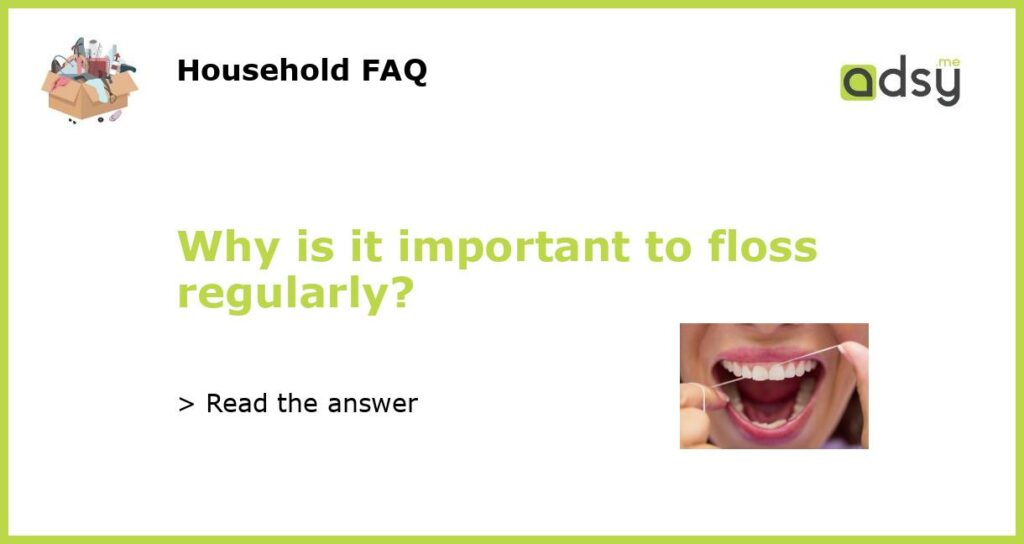What is Flossing?
Floss is a thin thread that is used to get rid of food particles and plaque that can get stuck between the teeth. It is a simple and effective way of cleaning the spaces between the teeth and maintaining good oral hygiene. Flossing, along with brushing, can help prevent tooth decay, gum disease, and bad breath.
The Importance of Flossing
Flossing is an essential part of maintaining excellent oral hygiene. Brushing alone cannot reach the tight spaces between the teeth where food particles and plaque can accumulate. Flossing helps to remove these particles and prevent the buildup of plaque, which can lead to gum disease, cavities, and bad breath.
The Benefits of Regular Flossing
Regular flossing has numerous benefits. It helps to prevent gum disease by removing harmful bacteria and plaque that can cause inflammation and infection in the gums. Flossing also helps to remove food particles that can get stuck between teeth, reducing the risk of cavities and decay. It can also improve bad breath by removing the bacteria and odor-causing particles from the mouth.
How Often Should You Floss?
Dentists recommend flossing at least once a day, preferably before bedtime. Flossing before brushing helps to loosen food particles and plaque, making it easier for the toothbrush to reach and clean the teeth effectively. It is important to floss gently, but thoroughly, being careful not to damage the gums. If you have trouble flossing, talk to your dentist, who may recommend alternative tools or techniques.
Flossing is an essential part of maintaining good oral hygiene. Regular flossing, along with brushing and regular dental checkups, can help prevent tooth decay, gum disease, and bad breath. It is a simple and effective way of cleaning the spaces between the teeth and should be incorporated into your daily oral care routine.






